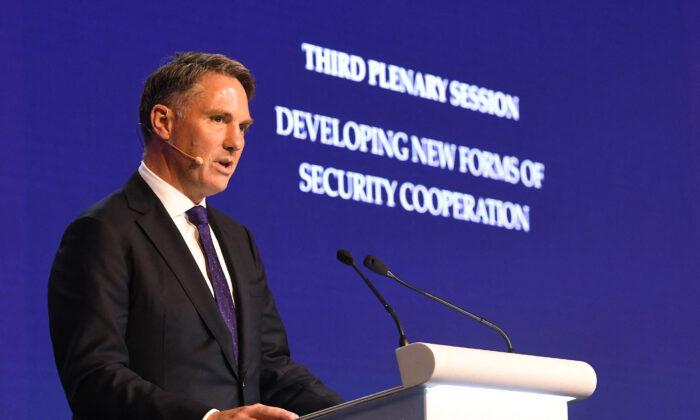“Australia values a productive relationship with China. China is not going anywhere. And we all need to live together and, hopefully, prosper together,” he said, claiming that China’s economic success is “connected to that of our region.”
Australia’s deputy leader further noted that while the Labor government won’t shy away from defending Australia’s national interest, it “will be respectful, including with countries where we have complex relationships.”
“This includes China,” he said, noting that there will be “a change in Australia’s tone” under new Labor Prime Minsiter Anthony Albanese.
“Australia’s approach will be anchored in a resolve to safeguard our national interests, and our support for regional security and stability based on rules. We will be steady and consistent, looking for avenues of cooperation where they exist, while recognising China’s growing power and the manner in which that is reshaping our region.”
The comments come nearly two months after Marles was criticised for failing to disclose his “pro-China” speech given at the Chinese embassy in Canberra, as well as a parliamentary trip to Beijing in 2019 that costs taxpayers $6,191.
“They’re backing China over the United States and that is a shocking mistake,” Dutton said in April.
Marles, however, blamed an “administrative error” for the incident while Labor again denied that the party has a “China problem.”
The former prime minister noted that given increasing tensions, it is important to differentiate between the Chinese regime and the Chinese people.
Last week, the Defence department revealed a dangerous incident that took place in May, which saw a Chinese warplane attacking an Australian maritime surveillance aircraft over the international waters of the South China Sea.
Given the Chinese regime’s increasing muscle flexing in the Indo-Pacific, Marles described China’s military build-ups as “the largest and most ambitious we have seen by any country since the end of the Second World War.”
The CCP’s militarisation of the South China Sea was intended to “deny the legitimacy” of international territories, the defence minister noted on Saturday.
But he argued, “It is critical that China’s neighbours do not see this build-up as a risk for them” because “insecurity is what drives an arms race.”
“So reassuring statecraft is essential,” he suggested. “The more complex the times, the more important there is dialogue and proper diplomacy.”
During the summit, Chinese Defence Minister Wei Fenghe, who was also in attendance and shook hands with Marles, blamed all tensions in the China-U.S. relationship on the United States, and said that Washington needed to take the initiative to improve bilateral ties, which lie at a critical juncture. He then warned that Beijing would “fight to the end” if Washington continues treating China as an adversary or an enemy.
“We request the U.S. side to stop smearing and containing China. Stop interfering in China’s internal affairs. The bilateral relationship cannot improve unless the U.S. side can do that,” Wei said.
The United States has been jostling with Beijing for influence as nations around the world decide whether they want to support a future led by the socialist CCP’s global plans or continue working for progress in the free and open international order led by the United States, that requires transparency and trust.




